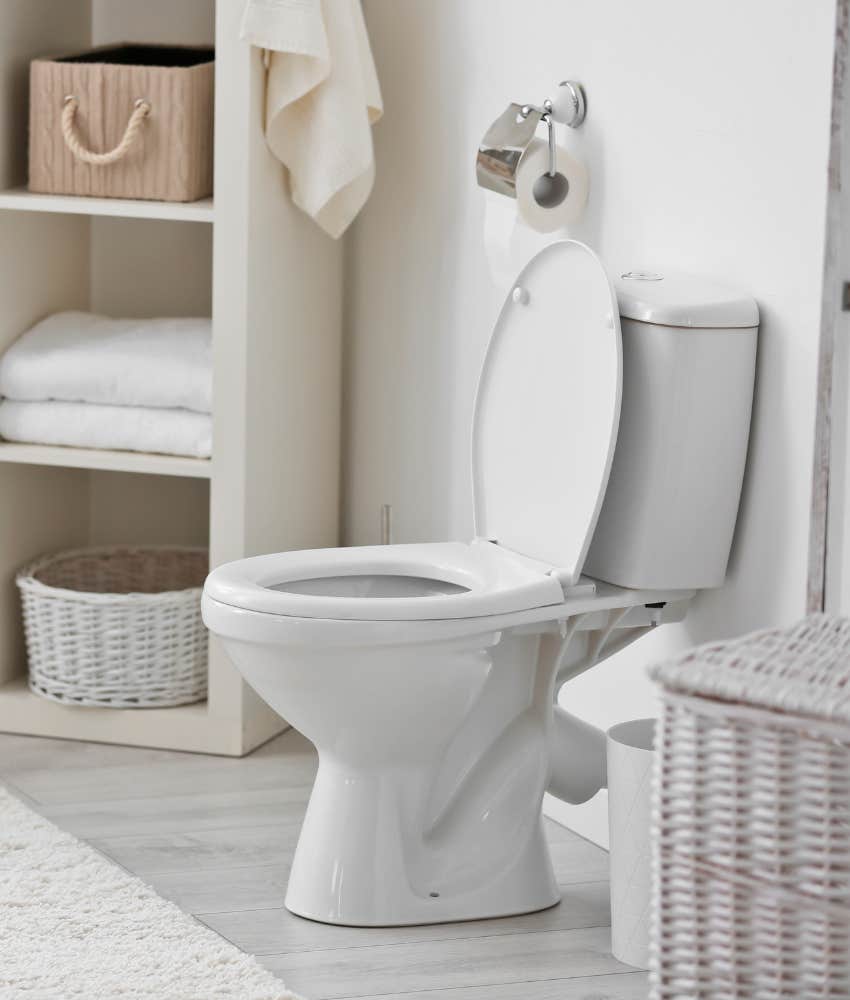The Deeper Issue Every Silly Toilet Seat Fight Actually Reveals, According To Psychology
It is not about up or down, it's about something much deeper.
 cottonbro studio | Pexels
cottonbro studio | Pexels Men think they are 100% straight shooters. Even if we want to believe the majority of men have perfect aim (which is not true), it's clear that most haven't made the quantum leap necessary to understand the difference between a latrine, which is a toilet used only by men, and a bathroom that's in one's home, to be used by everyone who lives in the house, as well as by any visitor.
According to psychology, the deeper issue every silly toilet fight actually reveals is one of control.
Whether men agree with the following statement or not, nothing can change the reality of it: Leaving the toilet seat up is a clear statement of control and power. Somehow, men have designated themselves as "owner of the toilet seat," and have made its "normal" position open and up.
 New Africa via Shutterstock
New Africa via Shutterstock
A 2013 study on power in intimate relationships found that the higher a person's level of power in a relationship, the lower their relationship satisfaction and level of commitment tend to be.
The study also showed the effects of gender roles on the power dynamic. When women hold the power, a man's commitment is dependent on his satisfaction. But when the man has the power, women's commitment is dependent on the man's ability to find another, more satisfying relationship.
The problem doesn't stop with men, as this behavior shows children (from the time they are toilet-trained) that when a woman wants to use his toilet seat, she must first put the seat down, every single time she needs to use it. This builds contempt.
Here's a scenario that has played out in millions of homes: It's 2:00 AM, she's pregnant, and groggily awakens to go to the bathroom, and doesn't turn the light on. Upon sitting, she's not groggy anymore! She just sat on a cold, wet (with his urine!) porcelain toilet base, and may have also wet her bottom with the water that's in the toilet. (Did he also forget to flush it? And contempt builds further.)
The Gottman Institute describes contempt as being "fueled by long-simmering negative thoughts about one’s partner, and it arises in the form of an attack on someone’s sense of self. Inevitably, contempt leads to more conflict, particularly dangerous and destructive forms of conflict, rather than to reconciliation."
 gpointstudio via Shutterstock
gpointstudio via Shutterstock
Although a relatively small issue, control struggles like these damage self-esteem.
And it's women, in their constant effort to improve/change/save the relationship, who consistently take in the most emotional damage as they try to adjust and change themselves to become "acceptable."
Self-esteem is affected by the ups and downs of romantic relationships, as explored in a 2008 study from the American Psychological Association. The researchers found self-esteem to be a function of everyday relationship events, so it must follow that having to deal with the ups and downs of the toilet seat multiple times a day will negatively impact self-esteem.
To change these conditions, women need to take back control (at least some of it), and by doing so, they can clearly demonstrate to men how to provide what they want and need. No mixed signals, no misinterpretations, and no wondering: just clear, respectful demands for what they need as women.
Men need to be held 100% accountable for their actions (or inactions) by the women in their lives; women need to hold the line and not allow men to behave like bratty children in their attempts to get away with controlling everything.
Momlogic is a Yourtango partner and part of the Warner Bros. Digital Network and is the premier destination for mothers online.

